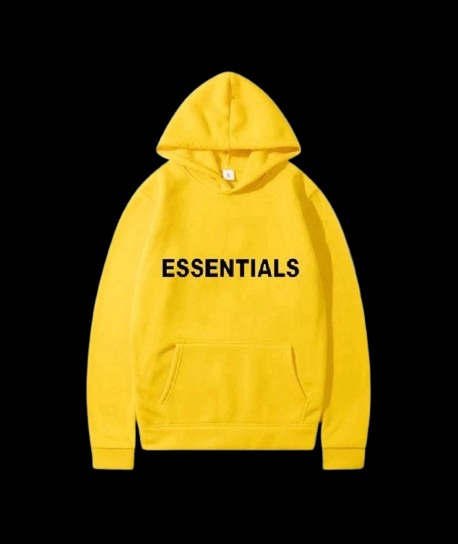Top DeFi Development Tools and Frameworks in 2025

Decentralized Finance (DeFi) is evolving rapidly, changing the way we interact with financial services. Whether it’s lending, borrowing, staking, or yield farming, DeFi is making traditional banking look outdated. But behind every successful DeFi project is a powerful set of development tools and frameworks that make building these platforms possible.
If you’re planning to develop a DeFi project in 2025, you need the right tech stack to ensure security, scalability, and efficiency. In this blog, we’ll explore the top DeFi development tools and frameworks that are shaping the industry.
Why Choosing the Right DeFi Tools Matters
Building a DeFi application is not just about writing smart contracts and deploying them. It involves:
- Security – DeFi platforms handle billions of dollars, so security must be airtight.
- Scalability – The network should handle increasing user demand without high gas fees.
- Interoperability – The platform should work seamlessly with other blockchain protocols.
To achieve all this, developers rely on specialized tools and frameworks that make DeFi development easier and more secure. Let’s dive into the top tools you should know in 2025.
Top Smart Contract Development Tools
Solidity – The Backbone of DeFi
What is it? Solidity is the primary programming language used to write smart contracts on Ethereum and EVM-compatible chains.
Why use it?
- It’s the most widely used language for DeFi development.
- It has an active community and extensive documentation.
- Compatible with Ethereum, Binance Smart Chain, Polygon, and more.
Best for: Developers looking to build secure and efficient smart contracts for DeFi applications.
Vyper – A Simpler Alternative to Solidity
What is it? Vyper is an alternative to Solidity, focusing on simplicity and security.
Why use it?
- It has a Python-like syntax, making it easier to learn.
- Designed to reduce attack surfaces and prevent vulnerabilities.
- Works seamlessly with Ethereum Virtual Machine (EVM).
Best for: Developers who prioritize security over complexity in DeFi smart contracts.
Blockchain Development Frameworks
Hardhat – The Developer’s Favorite
What is it? Hardhat is a development environment for building, testing, and deploying smart contracts.
Why use it?
- Automated testing for smart contracts.
- Local Ethereum network for debugging before deploying on the mainnet.
- Plugin support for added functionalities.
Best for: Developers who need a complete smart contract development toolkit.
Truffle Suite – A Classic Choice
What is it? Truffle is a framework that simplifies smart contract development and deployment.
Why use it?
- Offers built-in testing using JavaScript.
- Manages contract migration smoothly.
- Seamless integration with front-end interfaces.
Best for: Teams that want a robust and flexible development framework.
DeFi Security and Auditing Tools
OpenZeppelin – The Security King
What is it? OpenZeppelin provides pre-audited smart contract templates for DeFi projects.
Why use it?
- Reduces security risks with battle-tested code.
- Supports ERC-20, ERC-721, and other DeFi standards.
- Regularly updated by blockchain security experts.
Best for: Developers who want secure and reliable smart contracts without writing everything from scratch.
MythX – Automated Smart Contract Security
What is it? MythX is a smart contract security analysis tool that detects vulnerabilities in Solidity code.
Why use it?
- Identifies security flaws like reentrancy attacks.
- Integrates with Truffle and Hardhat.
- Helps in preventing exploits before deployment.
Best for: Developers looking for automated security testing for their smart contracts.
Oracles for DeFi Data Feeds
Chainlink – The Industry Standard
What is it? Chainlink is a decentralized oracle network that feeds real-world data into DeFi smart contracts.
Why use it?
- Provides accurate price feeds for DeFi applications.
- Ensures trustless and tamper-proof data.
- Works with multiple blockchains.
Best for: DeFi projects that require real-time financial data, such as DEXs, lending protocols, and derivatives platforms.
Pyth Network – A Rising Competitor
What is it? Pyth is an oracle network that provides low-latency price feeds directly from institutional sources.
Why use it?
- Designed for high-speed financial data.
- Gaining adoption in Solana and other fast blockchains.
- Lower gas fees compared to traditional oracles.
Best for: Developers building high-frequency trading and derivatives platforms in DeFi.
Cross-Chain DeFi Development Tools
Polkadot’s Substrate – The Interoperability Leader
What is it? Substrate is a blockchain framework that allows developers to create custom interoperable DeFi chains.
Why use it?
- Provides cross-chain communication with Polkadot’s ecosystem.
- Highly customizable for DeFi projects.
- Faster and cheaper transactions compared to Ethereum.
Best for: DeFi projects looking for seamless interoperability.
Cosmos SDK – The Internet of Blockchains
What is it? Cosmos SDK is a framework for building blockchain applications that can interact with multiple networks.
Why use it?
- Enables cross-chain DeFi applications.
- Lower gas fees and high scalability.
- Used by popular DeFi projects like Terra.
Best for: Developers building multi-chain DeFi applications.
Conclusion: The Future of DeFi Development
In 2025, the DeFi ecosystem will continue to evolve, and having the right tools and frameworks will be crucial for building secure and scalable applications. Whether you’re developing smart contracts, integrating cross-chain features, or securing your platform, these tools will help you stay ahead of the curve.
Need Expert Help with DeFi Development?
Building a DeFi platform requires deep technical expertise and security measures. If you’re looking for professional DeFi development services, Technoloader has you covered.
At Technoloader, we offer:
- Custom DeFi platform development
- Smart contract security audits
- Cross-chain DeFi solutions
Get in touch today and take your DeFi project to the next level!











